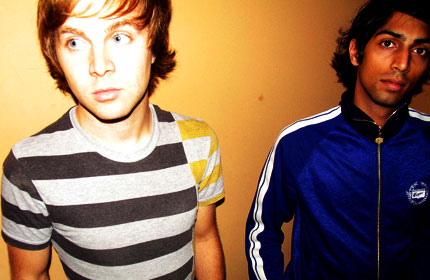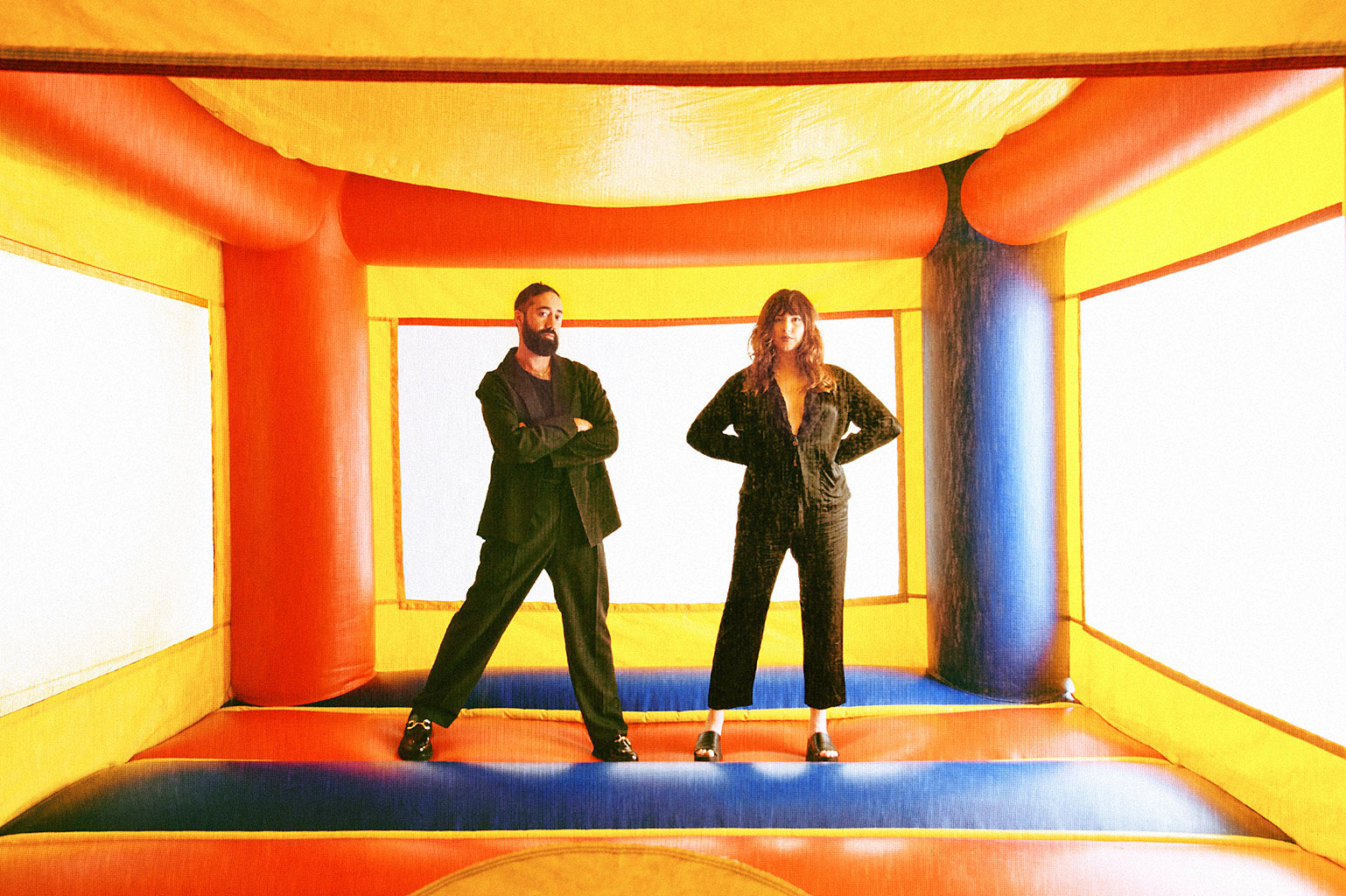 Whitney grew up in Kirkland, a suburb of Seattle. During his youth, Whitney and his group of friends never really fit in with what was popular at their school, and looked to playing in rock bands as the creative outlet that the government and schools just were not providing. “If you listened to the kind of music that we are – that the Blood Brothers or Neon Blonde is – you were a total outsider. If you didn’t listen to Montell Jordan or Snoop Dogg or any of that other stuff, people thought you were a freak,” Whitney recalls. “It’s totally different now, with people like My Chemical Romance and that sort of culture. It’s mass-produced and widespread now.”
Whitney grew up in Kirkland, a suburb of Seattle. During his youth, Whitney and his group of friends never really fit in with what was popular at their school, and looked to playing in rock bands as the creative outlet that the government and schools just were not providing. “If you listened to the kind of music that we are – that the Blood Brothers or Neon Blonde is – you were a total outsider. If you didn’t listen to Montell Jordan or Snoop Dogg or any of that other stuff, people thought you were a freak,” Whitney recalls. “It’s totally different now, with people like My Chemical Romance and that sort of culture. It’s mass-produced and widespread now.”
As gloomy as that may sound, Whitney admits that it has been better for him in the long run, as he and many of his “outsider” friends have been playing together since he was 13. “It’s just weird because if you go to a Blood Brothers show, there seems to be whole high school classes at our show,” Whitney observes. “When we were growing up, there were like five kids in high school who went to shows. You never really saw people who went to your school. It’s just different.”
Chandeliers in Savannahs, Neon Blonde’s first album, was written completely by Whitney, in a tedious and time-consuming manner. “I wrote most of the songs in conjunction with writing drum machine parts, so I would come up with a riff or a keyboard or something like that and sort of compile the whole thing in pieces. I’d record a drum machine part, then a bass line, and then did stuff until the song felt complete to me,” explains Whitney.
Musically, Neon Blonde is quite different from the Blood Brothers, some would say that Whitney’s voice is much better suited for Neon Blonde’s brand of 80s and cabaret-influenced rock. A parallel can be drawn between Neon Blonde’s music and the title of their album: both are obscure, confusing, and make you curious for more.
“I wanted to make a record that had the same upbeat quality of something like a Prince record or something like that – ’80s sort of dance music,” says Whitney. “That’s something that’s getting popularized right now, and I just wanted to do something that had that feeling, but at the same time, was different, and dark, and kind of weird.”
As a guitarist for Neon Blonde, Whitney uses this side project as an opportunity to showcase his guitar skills, since he has not yet played guitar for the Blood Brothers. This, however, will change with the Blood Brothers’ next release, for Whitney will be writing songs on the guitar for it. More importantly, though, Neon Blonde allows Whitney to create without the pre-fabricated restrictions and expectations that come with being in a band as well-known as the Blood Brothers.
“It’s hard when you’re in a band that’s already creatively defined by people who listen to it and media and all that,” Whitney reveals. “Sometimes you just need to do something that doesn’t have certain pre-existing expectations along with it.”
Unfortunately for fans of Neon Blonde, Neon Blonde really is not too much more than a side project for Whitney and fellow Blood Brothers member, Mark Gajadhar. In the next year, Whitney plans on dedicating his time to writing the new Blood Brothers record. Neon Blonde has only played about six shows, and has no plans of touring in the near future.
“If there’s anything that comes up that we can sort of get ready for, we’ll play it, but it’s kind of hard. There are some people that are sort of filling in as members of the band for the couple shows that we’ve played, so it’s all kind of up in the air,” says Whitney.
Those who are hoping that the genius of Neon Blonde will be widespread and widely known may be disappointed for the time being. But for those who like to keep the music they like underground, this is good news, since the band will not be getting much exposure through a musician’s number one resource: touring. One thing is certain, though – if Neon Blonde doesn’t tour extensively, there isn’t too much of a chance that their music will be holed into a stifling box by the media. Hopefully, this will ensure the creation of fruitful and innovative music on the part of Neon Blonde for a long time to come.
Ω






